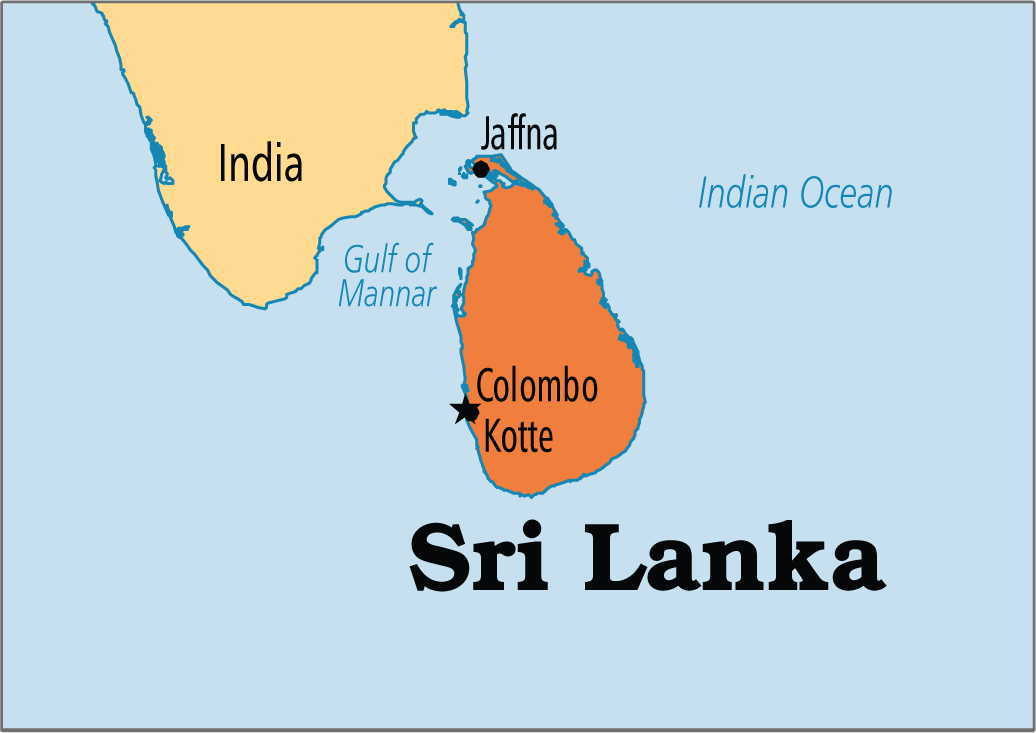International Relations
Sri Lanka to Draft a New Constitution
- 22 Aug 2020
- 6 min read
Why in News
The Sri Lankan President Gotabaya Rajapaksa (elected in 2019), while addressing the inaugural session of the Parliament, said that Sri Lanka will draft a new Constitution and abolish the 19th Amendment that curtailed the powers of the President and strengthened the role of Parliament.
- Sri Lanka’s new Cabinet includes members from the Rajapaksa family.
- Mahinda Rajapaksha is the Prime Minister of Sri Lanka.
- The Rajapaksa led Sri Lanka People’s Party (SLPP) won a landslide victory in the recently held parliamentary elections (August 2020), allowing the influential family to consolidate power for the next five years.
Key Points
- 19th Amendment:
- It was passed in 2015 during the former President Maithripala Sirisena-Prime Minister Ranil Wickremesinghe’s term (2015-19).
- It sought not only to clip the President’s executive powers, but also to strengthen independence of key pillars such as the judiciary, public service and elections.
- It brought back the two-term limit on Presidency.
- It was hailed by many, including members of civil society, as a progressive legislation in contemporary Sri Lankan history, even as its critics found it falling short in some respects.
- However, the Rajapaksa camp viewed its clauses as primarily intended to prevent its leaders’ return to power.
- It prevented dual citizens from contesting elections. At the time, two of the Rajapaksa family members including the current president were dual citizens of the USA and Sri Lanka.
- Its abolishment will strengthen Rajapaksa's grip on power because the country will return to its previous constitutional status, in which the President could appoint officials for the police, judiciary and public service and dissolve Parliament anytime after one year.
- New Constitution:
- The President said that the new Constitution would prioritise the concept of “one country, one law for all the people.”
- Sri Lanka's constitution has been changed 19 times from 1978, creating a lot of uncertainties and confusion.
- Changes will be made to ensure the stability of Parliament and people’s direct representation, while retaining the salutary aspects of the proportional representation system.
- Rights activists see the planned changes to the Constitution as an attempt to further empower the SLPP and the Rajpaksha brothers’ mainly Buddhist - Sinhalese speaking electorate.
- The Rajapaksa family, which dominated the government from 2005 to 2015, witnessed the climax of the country’s long civil war (1983-2009).
- The war divided Sri Lanka along ethnic lines - pitting the majority Buddhist Sinhalese-dominated government against Tamil rebels who wanted a separate state.
- The rebels were defeated by government forces in 2009.
- The President said that the new Constitution would prioritise the concept of “one country, one law for all the people.”
- India - Sri Lanka Relations:
- India’s Initiatives:
- Recently, the Reserve Bank of India (RBI) has signed an agreement for extending a USD 400 million currency swap facility to Sri Lanka to boost the foreign reserves and ensure financial stability of the country, which is badly hit by Covid-19 pandemic.
- Earlier, India assisted Sri Lanka by sending four consignments of essential medicines and equipment in the month of April and May 2020 to fight the pandemic.
- The Indian Housing Project is Government of India’s flagship project of developmental assistance to Sri Lanka. Its initial commitment is to build 50,000 houses for those affected by the civil war as well as for the estate workers in the plantation areas.
- Bilateral Cooperation:
- India and Sri Lanka conduct joint Military (Mitra Shakti) and Naval (SLINEX) exercises.
- Given the proximity of the territorial waters of both countries, especially in the Palk Straits and the Gulf of Mannar, incidents of straying of fishermen are common. Both countries have agreed on certain practical arrangements to deal with the issue of bona fide fishermen of either side crossing the International Maritime Boundary Line.
- Concerns:
- The Rajapaksa brothers have not paid that much attention to India’s entreaties after the civil war ended to devolve more powers to Tamil areas.
- Sri Lanka’s new ruling clan is sharply aware of India’s troubles with China on the LAC and in the region. The Rajapaksas will continue using China as a counter-weight to India.
- India’s Initiatives:
Way Forward
- For Sri Lanka, the Constitution-making process of the new Government shall strengthen Sri Lanka’s democracy and provide an inclusive platform for the country to achieve prosperity for all.
- For India, it should push for the reconciliation efforts for the Tamils in Sri Lanka while remaining sensitive to Sri Lanka’s security concerns.





